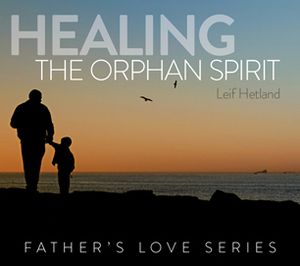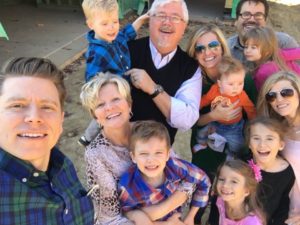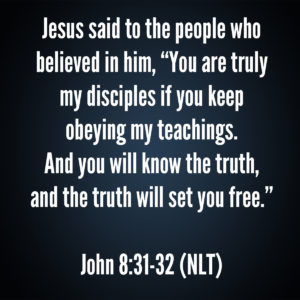
This is the final article on the orphan spirit in the church and I want to close with the parable in Luke’s gospel where Jesus addresses the problem of God’s children living and acting out of an orphan spirit. When I use the term “Orphan Spirit” I’m referring to an attitude that many believers have who would never consider the fact that they move in such a “Disconnected” way in their relationship with their Heavenly Father.
In the Gospel of Luke, Jesus has a discussion with a dinner guest at a pharisee’s house where he tries to get to the heart of what keeps us from a free and open relationship with God the Father. In the beginning of Luke 14 he asks the question is it right and lawful to heal on the sabbath or not and finally moves to one of the most famous parables in all the gospels that of the prodigal son. In order to do justice to the prodigal story we must see what led up to it and why he used it. Context is everything.
Luke 14:3-6
And Jesus answered and spoke to the lawyers and Pharisees, saying, “Is it lawful to heal on the Sabbath, or not?” But they kept silent. And He took hold of him and healed him, and sent him away. And He said to them, “Which one of you will have a son or an ox fall into a well, and will not immediately pull him out on a Sabbath day?” And they could make no reply to this.
In this first question Jesus is trying to get people to understand that people have great value to God and we should value them as well. God’s laws are meant to help people, not cage them. People in Jesus’ day are just like people in our time. Once we come to Jesus for forgiveness and healing and join a church we quite often tend to forget how guilt ridden and broken we were and look down at people who are still broken. Unless we have good shepherds or pastors in our own local churches a religious spirit can overtake many. Instead of churches being full of healing they become just like the pharisees who were more concerned with form than relationship. The pharisees, for the most part, started out well but they quickly moved into being judgmental and religious rather than lovers of God. What once originally motivated us about God now often scares us.
During the next portion of this dinner, Jesus points out pride in people’s heart as the second aspect of an unhealthy relationship with God. He uses a story about being invited to dinner and people taking “The Best Seat” and how pride is a sneaky thing that captivates us when we least expect it.
Luke 14:10-11
But when you are invited, go and recline at the last place, so that when the one who has invited you comes, he may say to you, ‘Friend, move up higher’; then you will have honor in the sight of all who are at the table with you. [11] “For everyone who exalts himself will be humbled, and he who humbles himself will be exalted.”
The third aspect revealed by Jesus in this discussion is with “Priorities” and how we often lose the priority of putting God first in life. Without making God our first priority in everyday life we will compromise a little at first but then any little thing will take precedent over our love for God. That is when the bottom of our relationship falls out and we start engaging in a religious or orphan spirit.
Luke 14:16-18
But He said to him, “A man was giving a big dinner, and he invited many; and at the dinner hour he sent his slave to say to those who had been invited, ‘Come; for everything is ready now.’ “But they all alike began to make excuses. The first one said to him, ‘I have bought a piece of land and I need to go out and look at it; please consider me excused.’ [24] ‘For I tell you, none of those men who were invited shall taste of my dinner.’”
Jesus finishes this discussion with a final statement that, if read out of context, seemed harsh and cruel yet Jesus never intended to be that way. Rather, he wanted to save his listeners from misunderstanding the Father’s heart and the requirements for a loving and lasting spiritual relationship.
Luke 14:25-26
Now large crowds were going along with Him; and He turned and said to them,“If anyone comes to Me, and does not hate his own father and mother and wife and children and brothers and sisters, yes, and even his own life, he cannot be My disciple.
Now I have taken a long time to get to chapter 15 and hopefully you’ll see the connection. In Luke 15 Jesus uses two short parables to once again reinforce the Father’s heart toward lost people. He values them very highly and requires us, as his sons and daughters, to have the same heart. The two parables are the lost sheep and the lost coin. Both these parables are linked to the previous ones we have discussed.
It is funny how this parable was never titled “The Prodigal Son” by Jesus. People translating scripture have added headers to help us remember portions of scripture, but Jesus did not include it. Sometimes when we see these headers they actually send us on a different path than the scripture might intend and I think this story is one of those times. We get lost focusing on the younger son and almost entirely miss the attitude and behavior of the older son. You see, the older son had the same problem of not having a good relationship with the father, even though both of them could have.
Luke 15:11-12
And He (Jesus) said, “A man had two sons. “The younger of them said to his father, ‘Father, give me the share of the estate that falls to me.’ So he divided his wealth between them.
The story goes on to tell of this younger son who gets his inheritance early and then squanders it. He uses all his money and then can’t get enough to eat during a famine. He then comes to his senses and gets an epiphany. A hired servant is better off being under my father’s authority and care than I am under my own pride and stupidity. He heads home and discovers his father’s forgiveness and love is still available.
Luke 15:20-22
So he got up and came to his father. But while he was still a long way off, his father saw him and felt compassion for him, and ran and embraced him and kissed him. “And the son said to him, ‘Father, I have sinned against heaven and in your sight; I am no longer worthy to be called your son.’ “But the father said to his slaves, ‘Quickly bring out the best robe and put it on him, and put a ring on his hand and sandals on his feet; [24] for this son of mine was dead and has come to life again; he was lost and has been found.’ And they began to celebrate.
The younger son realizes that his father’s love was and is more valuable than the wealth he had accumulated. Truthfully, the older son is in the same condition as the young son. He acts like an orphan and doesn’t trust his father’s judgement or heart. They both didn’t appreciate or truly engage in a loving relationship with their father. They misunderstood their father’s action and his heart. They acted like orphans who feel abandoned by not trusting people.
Luke 15:27-30
And he said to him, ‘Your brother has come, and your father has killed the fattened calf because he has received him back safe and sound. “But he became angry and was not willing to go in; and his father came out and began pleading with him. [29] “But he answered and said to his father, ‘Look! For so many years I have been serving you and I have never neglected a command of yours; and yet you have never given me a young goat, so that I might celebrate with my friends; but when this son of yours came, who has devoured your wealth with prostitutes, you killed the fattened calf for him.’
Here is the point. There are so many “believers” in the church today that are just like the older son. They don’t see themselves as orphans, but they act like ones. They don’t go out and “Sin” like the world yet they are separated from the healing love of their Heavenly Father. They go to church each Sunday and sing songs and listen to sermons, but the transformative power to change their hearts rarely if ever reaches their core. They are, for the most part, pharisees without realizing it. Coming to Christ for forgiveness was meant to open a door into a loving relationship with their Heavenly Father but they stopped at the door of forgiveness.
Questions:
1) Are you living in loving harmony with God or running your own life?
You can’t have it both ways, either you trust God or you don’t. Either your security is in him or mostly in yourself.
2) Scripture says you can only serve one master – Who will it be?
Trusting your Heavenly Father is the wisest thing you will ever do for both this life and for eternity.
Loving my Heavenly Father because of His great love for me.
Pastor Dale




I have really loved this series. It has brought deep thought. I have read it several times, contemplating on where my trust/security truly is. Having been a christian for so many years I want to make sure I am not like or do not become like the older brother…but make sure the transformation power reaches my core! Thank you for sharing this series!
Hi Cindy
You should read “Slavery to Sunship by Robert Frost. He was an early writer of the subject.
Blessings,
PAstor Dale